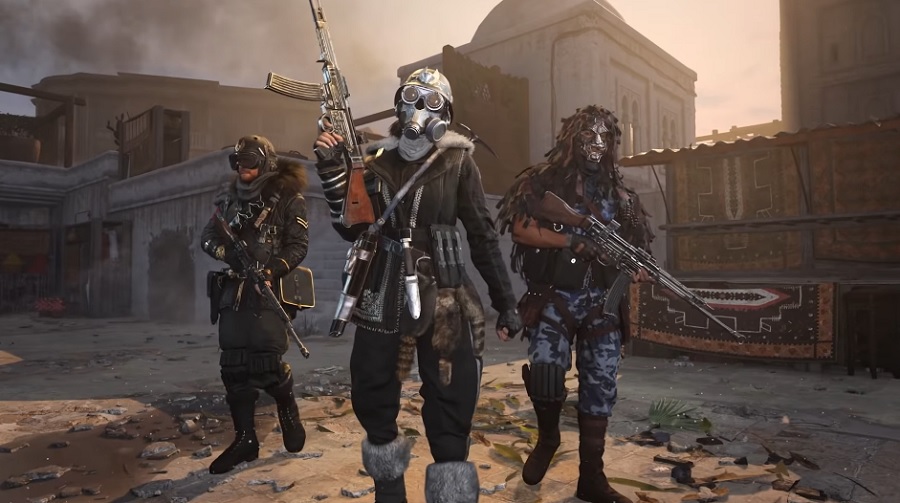“Call of Duty” anti-cheat initiative Ricochet confirmed it is testing new mitigation methods to quickly detect potential cheaters’ activities in-game. If they do not get a permanent ban from the game, they may face other punishments such as the new technique called Damage Shield.
As the name suggests, Ricochet aims to protect rule-following “Call of Duty” players from in-game cheaters. Once hackers are detected, this mitigation technique will automatically disable a hacker from causing real damage to legitimate players. Simply put, cheaters’ bullets should not work effectively as designed.
In-game cheating has become a plague for avid and legitimate players of shooter games like “Call of Duty” over the years. Last year, Activision introduced the Ricochet Anti-Cheat initiative that leverages a kernel-level driver on PC, which was later added to “Call of Duty: Vanguard.”
In an earlier post, Activision explained that Ricochet’s kernel-level driver is a “high level of access to monitor and manage software and applications” that are being used to manipulate the game. That means the “Call of Duty” anti-cheat effort no longer solely relies on players reporting cheaters. This technology should then detect when Damage Shield should be applied to potential in-game cheaters.
Aside from allowing real players to stand a chance against people using cheating tools, Damage Shield should also allow Ricochet to collect more information on a gamer’s system for possible heavier penalties. The “Call of Duty” anti-cheat team said interactions, where Damage Shield is activated, are being tracked to ensure it is not applied on legitimate players.
“To be clear, we will never interfere in gunfights between law-abiding community members,” Activision said. The “Call of Duty” publisher added that Damage Shield is still being tested, but it is slated to launch for all players worldwide.
Activision also noted that Damage Shield is just one of the mitigation techniques Activision is working on to boost the “Call of Duty” anti-cheat efforts. But permanent suspension remains the ultimate punishment, especially for repeat offenders. And the publisher reminded players that this sanction is carried out across the franchise, including “Modern Warfare,” “Black Ops Cold War,” and future “Call of Duty” games.



 SpaceX Updates Starlink Privacy Policy to Allow AI Training as xAI Merger Talks and IPO Loom
SpaceX Updates Starlink Privacy Policy to Allow AI Training as xAI Merger Talks and IPO Loom  AMD Shares Slide Despite Earnings Beat as Cautious Revenue Outlook Weighs on Stock
AMD Shares Slide Despite Earnings Beat as Cautious Revenue Outlook Weighs on Stock  SpaceX Pushes for Early Stock Index Inclusion Ahead of Potential Record-Breaking IPO
SpaceX Pushes for Early Stock Index Inclusion Ahead of Potential Record-Breaking IPO  Tencent Shares Slide After WeChat Restricts YuanBao AI Promotional Links
Tencent Shares Slide After WeChat Restricts YuanBao AI Promotional Links  Baidu Approves $5 Billion Share Buyback and Plans First-Ever Dividend in 2026
Baidu Approves $5 Billion Share Buyback and Plans First-Ever Dividend in 2026  Nintendo Shares Slide After Earnings Miss Raises Switch 2 Margin Concerns
Nintendo Shares Slide After Earnings Miss Raises Switch 2 Margin Concerns  OpenAI Expands Enterprise AI Strategy With Major Hiring Push Ahead of New Business Offering
OpenAI Expands Enterprise AI Strategy With Major Hiring Push Ahead of New Business Offering  Elon Musk’s SpaceX Acquires xAI in Historic Deal Uniting Space and Artificial Intelligence
Elon Musk’s SpaceX Acquires xAI in Historic Deal Uniting Space and Artificial Intelligence  Google Cloud and Liberty Global Forge Strategic AI Partnership to Transform European Telecom Services
Google Cloud and Liberty Global Forge Strategic AI Partnership to Transform European Telecom Services  Nvidia Confirms Major OpenAI Investment Amid AI Funding Race
Nvidia Confirms Major OpenAI Investment Amid AI Funding Race  Nvidia, ByteDance, and the U.S.-China AI Chip Standoff Over H200 Exports
Nvidia, ByteDance, and the U.S.-China AI Chip Standoff Over H200 Exports  SpaceX Prioritizes Moon Mission Before Mars as Starship Development Accelerates
SpaceX Prioritizes Moon Mission Before Mars as Starship Development Accelerates  Elon Musk’s Empire: SpaceX, Tesla, and xAI Merger Talks Spark Investor Debate
Elon Musk’s Empire: SpaceX, Tesla, and xAI Merger Talks Spark Investor Debate  Sony Q3 Profit Jumps on Gaming and Image Sensors, Full-Year Outlook Raised
Sony Q3 Profit Jumps on Gaming and Image Sensors, Full-Year Outlook Raised 































